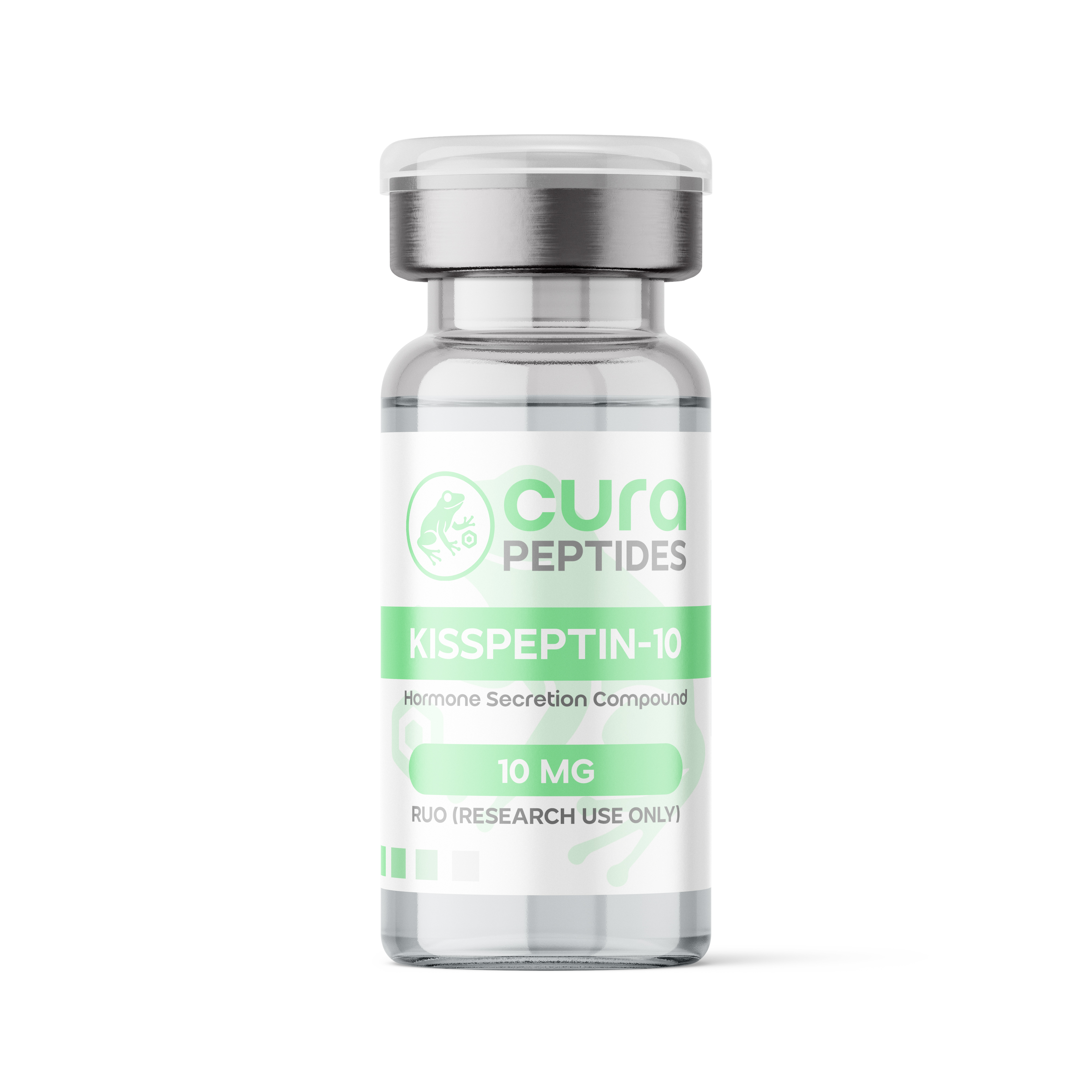Longevity & Hormonal Balance Peptides
Longevity isn’t about age — it’s about sustained energy, clarity, and equilibrium. This category includes peptides researched for cellular rejuvenation, mitochondrial health, and hormonal signaling balance.
When explored through a lifestyle rooted in recovery, nutrition, and mindfulness, these peptides represent the science of feeling timeless.
Longevity & Hormonal
Balance Peptides FAQs
Find answers to your most pressing questions about peptide categories and their usage.
Longevity and Hormonal Balance peptides are amino acid chains studied for their potential to support the body’s cellular repair systems, hormone communication, and metabolic stability — three pillars of healthy aging. They don’t add hormones into the body; instead, they are researched for how they may optimize the body’s own signaling processes that influence vitality, recovery, and balance over time.
Cura Peptides provides these materials for laboratory research use only.
Aging is not just about time — it’s about cellular communication decline. Many longevity peptides are studied for their role in mitochondrial efficiency, DNA repair, oxidative protection, and stem cell activation. By supporting signaling pathways like AMPK, FOXO, and mTOR, researchers aim to understand how these compounds might help cells age more intelligently — staying efficient, resilient, and adaptive longer.
Hormonal peptides don’t replace hormones — they’re signaling molecules that interact with receptors in the brain and body, guiding natural hormone production and regulation. For instance, certain peptides are studied for how they influence growth hormone-releasing pathways, thyroid function, or reproductive axis communication (GnRH, LH, FSH).
They’re about rebalancing, not overriding — aligning with Cura’s philosophy of supporting what the body already knows how to do.
Some of the most researched peptides include:
Epithalon — Studied for telomere support and cellular aging.CJC-1295 / Ipamorelin — Explored for growth hormone pulse regulation and recovery.
Kisspeptin-10 — Researched for reproductive hormone communication and endocrine balance.
Thymalin (TB 500) — Examined for immune system and longevity correlations.
MOTS-C — Investigated for mitochondrial repair and metabolic resilience.
All Cura Peptides products are for laboratory research only and not for human or clinical use.
Hormone therapies add external hormones into the body, which can disrupt feedback loops over time. Peptides, on the other hand, are being studied for their ability to enhance or restore natural hormone rhythm by supporting communication within the endocrine system. This means the body stays in charge — peptides may simply help it speak its native language more clearly.
Mitochondria are the cell’s energy engines — and one of the main focus areas in anti-aging science. Peptides like MOTS-C and Humanin are studied for their influence on mitochondrial signaling, resilience under stress, and metabolic homeostasis.
In longevity studies, improving mitochondrial efficiency is often linked to increased lifespan and vitality — though all such research remains in preclinical phases.
Yes — peptide signaling is universal to all humans, but certain peptides are being studied for gender-specific pathways. For example, Kisspeptin-10 is investigated for its role in regulating reproductive hormones, while CJC-1295/Ipamorelin blends are observed for growth hormone regulation that benefits both men and women.
Research focuses on understanding how signaling precision might replace blunt hormone interventions in the future.
When handled in professional laboratory environments, peptides are safe to study. Cura Peptides are produced in GMP-certified, FDA-registered facilities and undergo third-party testing for purity, potency, and identity. They are intended strictly for research use and not for therapeutic or consumer application.
To preserve molecular structure, peptides should be stored in a cool, dark, and moisture-free environment — ideally refrigerated or frozen.Reconstituted peptides should be used promptly and protected from light and repeated freeze-thaw cycles.
Every Cura Peptides vial includes handling and storage guidance specific to the compound type.
Peptides sit at the intersection of biology, biohacking, and regenerative medicine research.
They represent a shift from symptom management to signal restoration — studying how the body can maintain balance, vitality, and cellular intelligence naturally.
Cura’s mission is to bridge science and lifestyle, empowering researchers to explore the next frontier of healthy aging through integrity, transparency, and education.
Cura Peptides products are intended for laboratory research use only and are not approved for human consumption or therapeutic use.
Still have questions?
We're here to help you with any inquiries.




